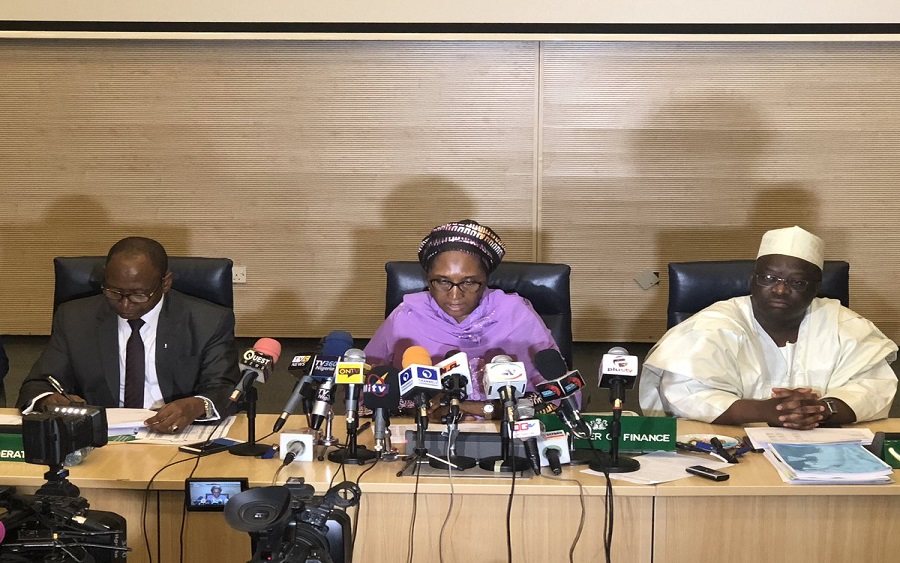Members of the Federal Account Allocation Committee (FAAC) have disagreed over the amount presented by revenue-generating agencies for allocation to the Federal Government, State and Local governments.
The committee had met to deliberate and approve the amount that would be shared by the three tiers of the government. However, it was not impressed with what was made available. The meeting, presided over by the Minister of Finance, Budget and National Planning, Zainab Ahmed, had in attendance, commissioners of finance from the 36 states in Nigeria.

Also present at the meeting, which took three hours and ended in the night, were the Accountant General of the Federation, Ahmed Idris, representatives of the Revenue Mobilisation Allocation and Fiscal Commission, the Federal Inland Revenue Services, and the Nigeria Customs Service.
It was reported that the amount presented for sharing by the revenue-generating agencies for the month of February 2020 was lesser than expected, so it left the committee disgruntled, causing the meeting to end abruptly, an official of the Ministry of Finance said.
[READ MORE: FAAC disburses N650.8 billion in December 2019, South-South states receive highest share)
Another official told Punch that the issue would now be handled by the National Economic Council which is chaired by Vice President, Yemi Osinbajo, and scheduled to hold a meeting today, Thursday. The NEC, comprising of the 36 state governors, the governor of the Central Bank of Nigeria (CBN) and other co-opted government officials, advises the President on the economic affairs of the federation.
Possible reason for allocation drop: Government revenue has dropped in recent times. The Federal Inland Revenue Service (FIRS) did not meet up with its set revenue target of N8.8 trillion in 2019. According to data from FIRS, the agency generated N5.26 trillion in 2019, which is just 59.8% of the target. And the new FIRS boss, Nami has stated that the tax agency might not meet the target for 2020.
Also, due to the development in the global oil market, as the oil price war between Russia and Saudi Arabia intensifies, government revenue is declining. The oil price war led to the crash of oil price as Brent crude oil now sells for $28.14 per barrel – the lowest since 2003.
READ ALSO: 10 Nigerian companies pay a combined N187.9 billion taxes in first half of 2019
This has affected the government’s revenue mobilization as the budget is benchmarked on Brent crude oil is $57 per barrel. Note that fuel pump price now sells for N125. This, including the negative impact of coronavirus on businesses, have compelled the Federal Government to consider curring the budget.















